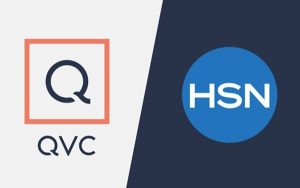— September 2, 2019
Entrepreneurs always need to be prepared for the worst-case scenario. One of the most frightening situations they can face in 2019 is a recession. According to recent reports, the UK economy has reported the slowest growth since 2012. The risk of a recession is rising in the United States as well, as fears of an ongoing trade war threaten to derail the economy.
The possibility of a recession looms over the heads of business owners around the world like an ominous cloud. You need to take sensible precautions to protect your financial future if a recession strikes.
Here are some important steps you should take to mitigate the risk of a recession.
Build a surplus in your tax savings account
It took me a few years to realize that it is a good idea to have a separate savings account for tax purposes. It is a lot easier to make sure that you have enough money to cover your taxes when you aren’t commingling that money with your regular savings.
You need to save aggressively for taxes throughout the year. Most business owners live by the 30% rule – they set aside 30% of their income for taxes. The problem with this approach is that you could notice a strong drop in your revenue later in the year, which might mean that you won’t be able to cover your regular expenses without falling behind on your taxes.
This risk is even higher in a turbulent economy. You might not be able to cover both your tax liabilities and regular living expenses if you’re only putting aside 30% of your income. You should put a little extra aside if the economy is strong and your cash flow is good. You will be glad you made this decision later if things turn for the worse.
Start testing guerrilla marketing strategies instead of planning on cutting your marketing budget
The average business owner is not the most effective marketer. They make arbitrary marketing decisions and don’t track performance carefully enough.
This ad hoc approach might work fine during a strong economy. However, you can’t depend on an inefficient marketing strategy during a bad economy.
Running a poorly thought out marketing strategy during a bad economy is especially risky if you are setting your marketing budget as a percentage of your sales. Your marketing budget is going to shrink if you are allocating your marketing funds this way. This is not usually the best approach, because you should often increase your marketing efforts during a bad economy to get the most market share. However, you might actually need to reduce your spending on marketing if cash flow is starting to decline.
This creates a dilemma for most business owners. The only obvious alternative is to get more bang for your buck. You want to consider new marketing strategies that will get you much better results on the same budget.
Start pulling back on discretionary purchases to build a cash reserve
You are going to need to start building a cash reserve to survive a major economic downturn. The general rule of thumb is that you should have an emergency cash reserve to survive six months worth of expenses. You might want to build an even larger cash reserve before a bad economy. This is especially important if you are in a cyclical business and don’t get paid regularly, such as a real estate agency where you only get paid a couple of times a year. Economic uncertainty could cause you to go a year without earning any revenue.
You are going to have a hard time building a cash reserve if you don’t spend responsibly. You should take a close look at your budget. Be honest with yourself about how much money you spent on unnecessary expenditures. You might want to start pulling back on them, because you will want to set that money aside to survive an upcoming recession.
Have decent health coverage
You can’t overlook the importance of having good health insurance. A single healthcare emergency could lead to bankruptcy.
Unfortunately, too many business owners don’t make healthcare a priority. A 2016 report by the Commonwealth Fund showed that 19.2% of self-employed adults had no health insurance.
You don’t want to make this mistake. The last thing you want to face during a recession is inadequate health insurance. You should also consider offering health insurance to your employees as well.
Consider exploring recession-proof product and service offerings
Some products and services are going to be more closely correlated to the economy than others. You need to be realistic about this. A bad economy could cause your revenue to drop very sharply if do you have one of these business models.
You might be able to find other products and services to offer that won’t be as heavily impacted by the economy.
Business & Finance Articles on Business 2 Community
(26)






